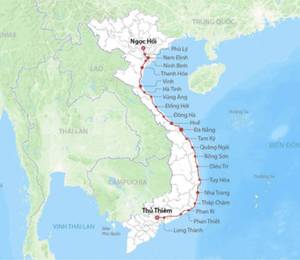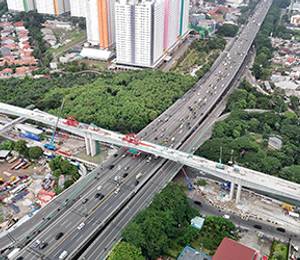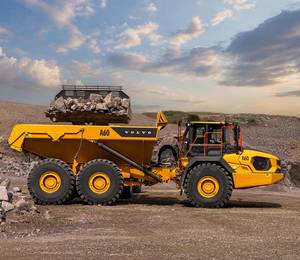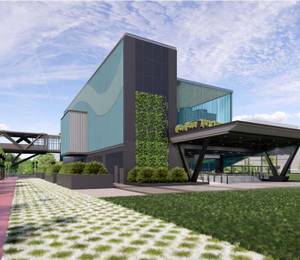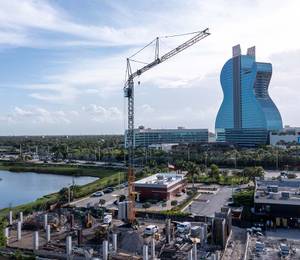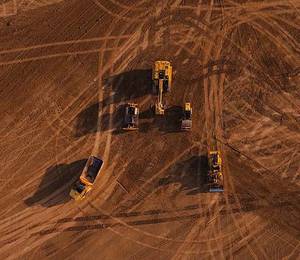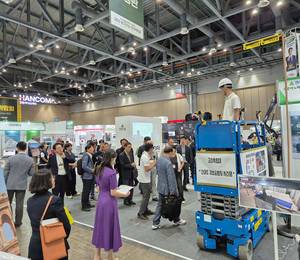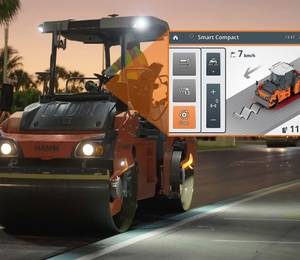The new KMA 240(i) cold recycling mixing plant produces mix/cold mix that can be paved immediately and is ideally suited to producing different types of bound base layers. In addition to cement-treated base layers (CTB) and roller-compacted concrete (RCC), the plant can also produce bituminous bound base layers (with emulsion or foamed bitumen). The different mixes/cold mixes can be used for a wide range of applications, including highway construction, road and path construction, and the construction of parking lots or industrial areas.
The cold recycling mixing plant is mounted on a flatbed semitrailer and has its own engine unit. This mobile design allows the system to be flexibly moved to different locations and set up rapidly. With this new plant, Wirtgen combines the advantages of its earlier model, the KMA 220(i), with improved mixing performance and an innovative cement metering system with automatic self-calibration via static weighing.
The six-cylinder diesel engine is designed for the plant’s high mixing capacity of up to 240 t/hr. Thanks to an efficiently insulated housing, it emits little noise and can be operated economically for up to two days on one tankful. Its low emission values also allows it to be used in urban areas.
Providing a capacity of 240 t/hr, the plant produces a full truckload of 20 t of mix every five minutes. As a result, sections of a cement-treated or bituminous bound base layer with a working width of 4 m and a paving thickness of 15 cm can be completed over a length of 1,400 m every day, according to Wirtgen.
The KMA 240(i) plant is capable of processing a large variety of non-cohesive base materials, which wheel loaders feed to the plant’s hopper via vibrating grids. This makes it possible to produce mixes/cold mixes from a wide variety of new granular mixtures or various milled materials and binding agents.
Wirtgen added that asphalt milled material, all other non-cohesive materials reclaimed from old road surfaces, and materials from RC processing can all be used to build new road surfaces in an environment-friendly manner. The ability to completely reuse the material results in high CO2 and energy savings with minimal construction costs and project periods.
Silos or tank trucks supply the cold recycling mixing plant with binding agents, such as hot bitumen, bitumen emulsion, and cement. The precise metering of the input materials and binding agents, the ratio of which is determined in advance by preliminary tests in the road construction laboratory, is monitored by a microprocessor control system. The KMA 240(i) ideally loads the new, homogeneous mix directly onto trucks or deposits it continuously on a stockpile. Loading or depositing can be carried out flexibly, thanks to the discharge conveyor that can swing 55° to either side.
Cold recycling technology from Wirtgen has been designed as an environment-friendly and cost-effective rehabilitation method that can be carried out either in place – in which case the damaged pavement is removed by a mobile recycling train, processed on site, and immediately repaved – or in plant.
The manufacturer said, “If the mixing plant is located too far away or the job site doesn’t meet the logistical requirements needed to carry out the entire recycling process in one pass, cold in-plant recycling is often the perfect solution. This method involves setting up the KMA mobile cold recycling mixing plant in the immediate vicinity of the job site, thus saving time, truck capacity, and is also extremely environment-friendly, and in turn making it possible to achieve up to 70% fewer CO2 emissions through cold processing, a 90% reduction in transport volumes, and up to 40% lower construction costs. Furthermore, the high-quality building materials are completely reused.”
